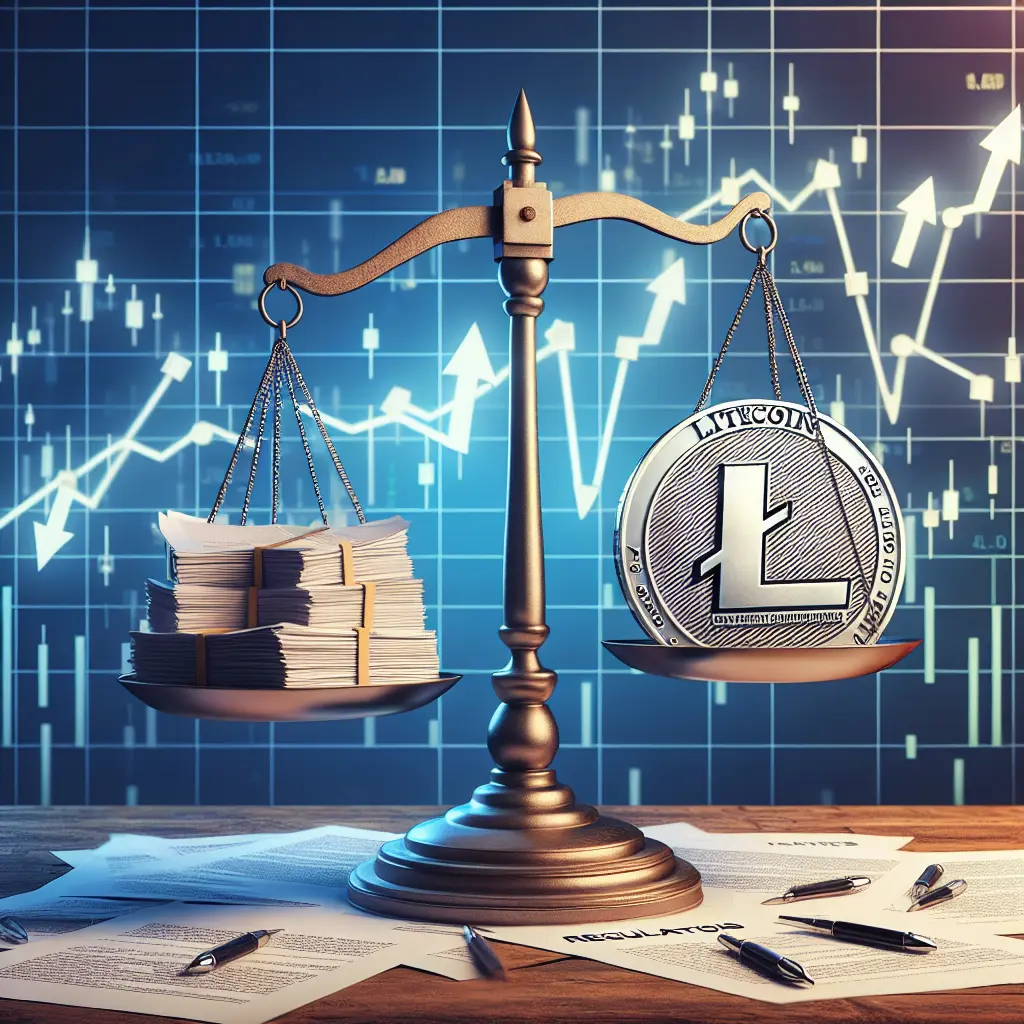
In the ever-evolving world of cryptocurrency, Litecoin has consistently captured the attention of traders and investors. As a lighter and faster alternative to Bitcoin, Litecoin trading has seen significant growth. However, with the landscape of cryptocurrency regulations changing rapidly, it's crucial to analyze the impact of these regulatory changes on Litecoin and its trading environment.
The Ripple Effects of Regulatory Changes on Litecoin Trading
The cryptocurrency market is no stranger to the influence of regulatory changes. Governments and financial authorities worldwide are continuously adjusting their stances on cryptocurrencies, impacting everything from trading practices to market valuations. For Litecoin, these regulatory adjustments can have profound implications.
Understanding the Impact on Litecoin
Regulatory changes can either enhance the legitimacy and stability of trading cryptocurrencies like Litecoin or create market uncertainty. For example, positive regulations can lead to increased adoption and improved market infrastructure, which in turn boosts investor confidence and trading volumes. On the other hand, stringent crypto trading laws can stifle market growth and deter potential investors due to perceived risks and operational restrictions.
Cryptocurrency Regulations Worldwide
Countries vary widely in their approach to cryptocurrency regulations. While some, like Japan, have embraced it with relatively open arms, others have imposed stricter controls or outright bans that directly affect trading activities and market dynamics. These global discrepancies in cryptocurrency regulations necessitate a vigilant Litecoin market analysis to navigate and capitalize on emerging opportunities while adhering to legal standards—ensuring Litecoin compliance remains paramount.
The Specifics of Crypto Trading Laws
Crypto trading laws impact various aspects of the cryptocurrency world, including security protocols, KYC (Know Your Customer) requirements, anti-money laundering (AML) strategies, and the reporting of transactions. Each of these areas influences how Litecoin and other cryptocurrencies can be traded and stored. For instance, enhanced AML and KYC regulations might increase the operational costs for exchanges and traders but also augment the security and reliability of crypto transactions.
Financial Regulation Crypto: A Double-Edged Sword
Financial regulation in the realm of cryptocurrencies can serve as both a protective measure for consumers and an operational hurdle for crypto companies. The balance struck by regulators often reflects their desire to integrate cryptocurrencies into the broader financial system while mitigating potential risks associated with their volatility and anonymity.
Recent News and Updates
Given the dynamic nature of the cryptocurrency market, staying updated with recent developments is crucial. Notable recent news includes Meta Platforms Inc's (NASDAQ:META) significant investment in virtual reality through Reality Labs, which has burned through $45 billion. Such massive investments in related technologies indicate a growing institutional interest in digital assets and their underlying technologies, potentially influencing sectors like cryptocurrency.
Additionally, social media platforms play a crucial role in cryptocurrency markets. Reports of individuals earning significant sums by posting memes on Facebook highlight the power of social media in shaping public perceptions and potentially influencing market trends, including those related to cryptocurrencies like Litecoin.
The Broader Picture: Cryptocurrency Market Changes
The broader cryptocurrency market is subject to rapid changes, influenced by technological advancements, speculative trading, macroeconomic factors, and regulatory developments. Each of these factors can lead to significant fluctuations in the Litecoin market. Keeping abreast of these changes through continuous Litecoin market analysis is essential for traders and investors aiming to make informed decisions.
Navigating Through Uncertainty
For stakeholders in the Litecoin arena, understanding and adapting to cryptocurrency regulations is crucial. Stakeholders must stay informed about regulatory trends and compliance strategies to navigate this complex landscape effectively. Engaging with legal experts and utilizing compliance tools can help in maintaining adherence to evolving laws and regulations.
Conclusion
The impact of regulatory changes on Litecoin trading is profound and multifaceted. From influencing market stability to altering compliance requirements, these changes shape the trading landscape significantly. Traders and investors must remain agile, informed, and compliant to navigate these waters successfully.
As we continue to witness the evolution of Litecoin and its ecosystem, staying updated and adaptable will be key to thriving in this vibrant market. Embracing change, whether in the form of regulatory shifts or market dynamics, will be essential for those looking to make the most of their investments in Litecoin.
Thank you for joining me on this exploration of how regulatory changes impact Litecoin trading. For those navigating this complex terrain, may your decisions be informed and your investments secure.
June Hicks
For further reading and updates on this topic, reputable sources such as CoinDesk, Bloomberg’s Crypto section, and official statements from financial regulatory bodies are invaluable.